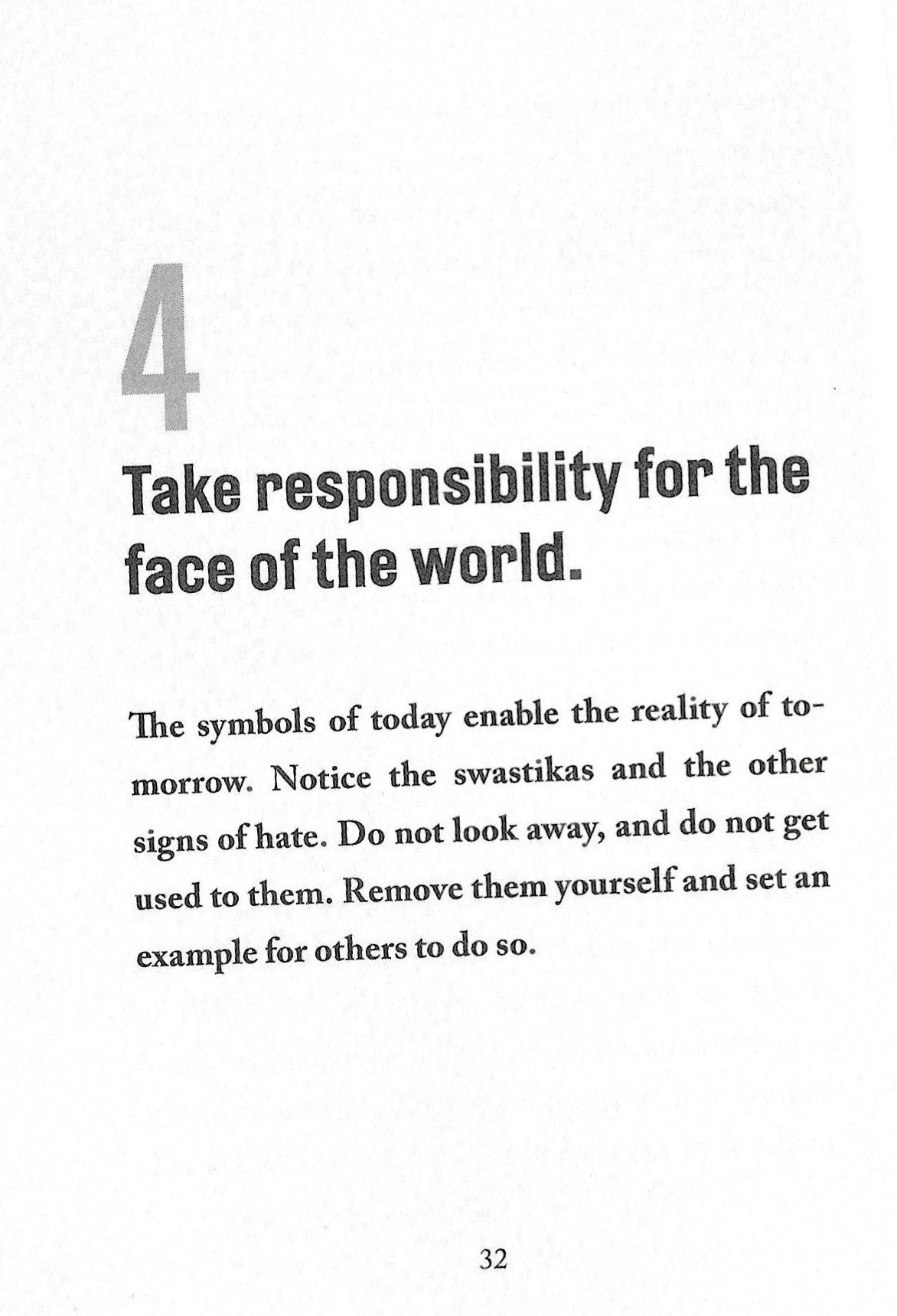This lesson gave me a lot to reflect on. First, it reminded me of an excellent video that I saw a couple of years ago by Hank Green, the YouTube science educator. He basically pointed out that if there is litter in your neighborhood (and there is always litter in my highly urban neighborhood), the responsibility for it is equally on the person who tossed it and on people who don’t pick it up. One initiates it, the others maintain it. It made me realize that if I want to live in a tidy neighborhood, I need to take at least some of the resposibility for keeping it tidy—by occasionally picking up a piece of trash off the sidewalk and tossing it into a garbage can. This requires a tiny amount of labor and is kind of gross and disgusting, but if we all did it, my neighborhood would look pristine!
My second thought is that in our current situation, those supporting the anti-democracy regime physically wear their support on hats, tshirts, etc. I can tear down a flyer or a poster, but I am not going to knock some bro’s MAGA-hat off his head. I had this thought the day after the election when a resident of my apartment building decided to celebrate democracy’s demise by parading his Trump gear through the neighborhood, looking like a Wrestlemania cosplayer. I was sickened.
And finally, what I find so valuable about Snyder’s short book is that he uses lessons and documents from 20th century European history to illustrate his lessons. One document he refers to frequently is “The Power of the Powerless”, written in 1978 by Václav Havel in Czechoslovakia. Havel pointed out that symbols of a regime or ideology become ubiquitous because displaying these symbols is easier than not displaying them. Writing about a greengrocer who places a sign reading “Workers of the world, unite!”, the phrase that concludes The Communist Manifesto, Havel wrote:
We have seen that the real meaning of the greengrocer’s slogan has nothing to do with what the text of the slogan actually says. Even so, the real meaning is quite clear and generally comprehensible because the code is so familiar: the greengrocer declares his loyalty in the only way the regime is capable of hearing; that is, by accepting the prescribed ritual, by accepting appearances as reality, by accepting the given rules of the game, thus making it possible for the game to go on, for it to exist in the first place.
Havel then asks what if no one plays the game?
This quote came to mind when I was meeting someone for dinner last night. I was standing on the sidewalk outside the restaurant, which had outdoor seating as well. In one corner of the outdoor are was a large TV screen playing Fox. Is this the contemporary American equivalent of the greengrocer’s communist slogan?
Lessons 1, 2, and 3 from On Tyranny have been discussed before.
[Please consider supporting this publication by becoming a patron, and you can also support it by patronizing our online store. And one more way to support this work is to buy books through The Great God Pan is Dead’s bookstore. ]





This is a good one to think about. I am not one to sloganeer, but maybe the time is right to make my opinions heard in the real world, not just online.
I do occasionally pick up trash in public, not because I think my share of responsibility is necessarily equal to the person who left it there, but I do have the desire to see my world cleaner. Just this morning, as I was picking up my dog's leavings, they happened to land right next to some desiccated leavings from someone else's dog. It cost me little to add them to my bag and throw them out, and I felt better for having done it.